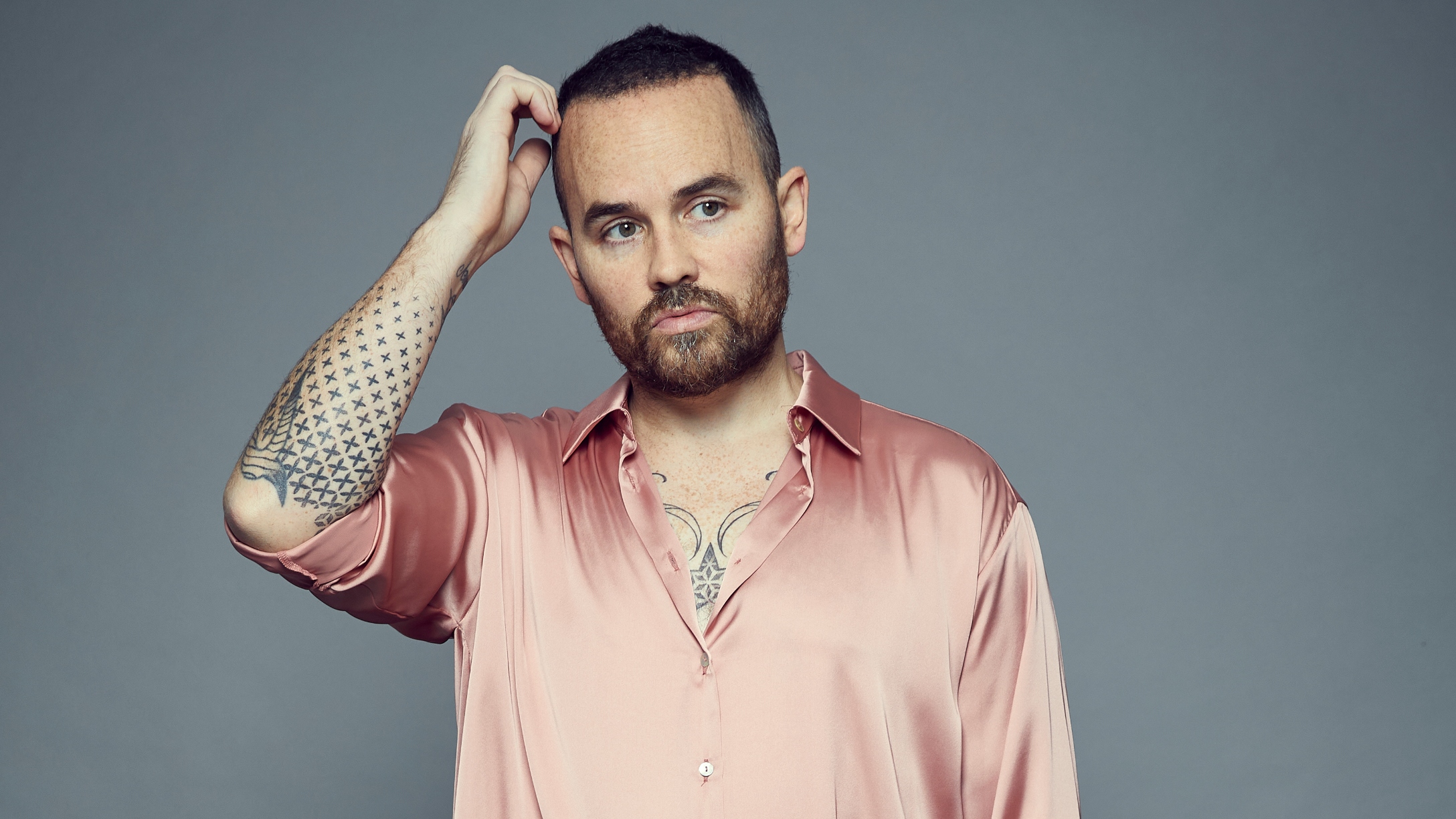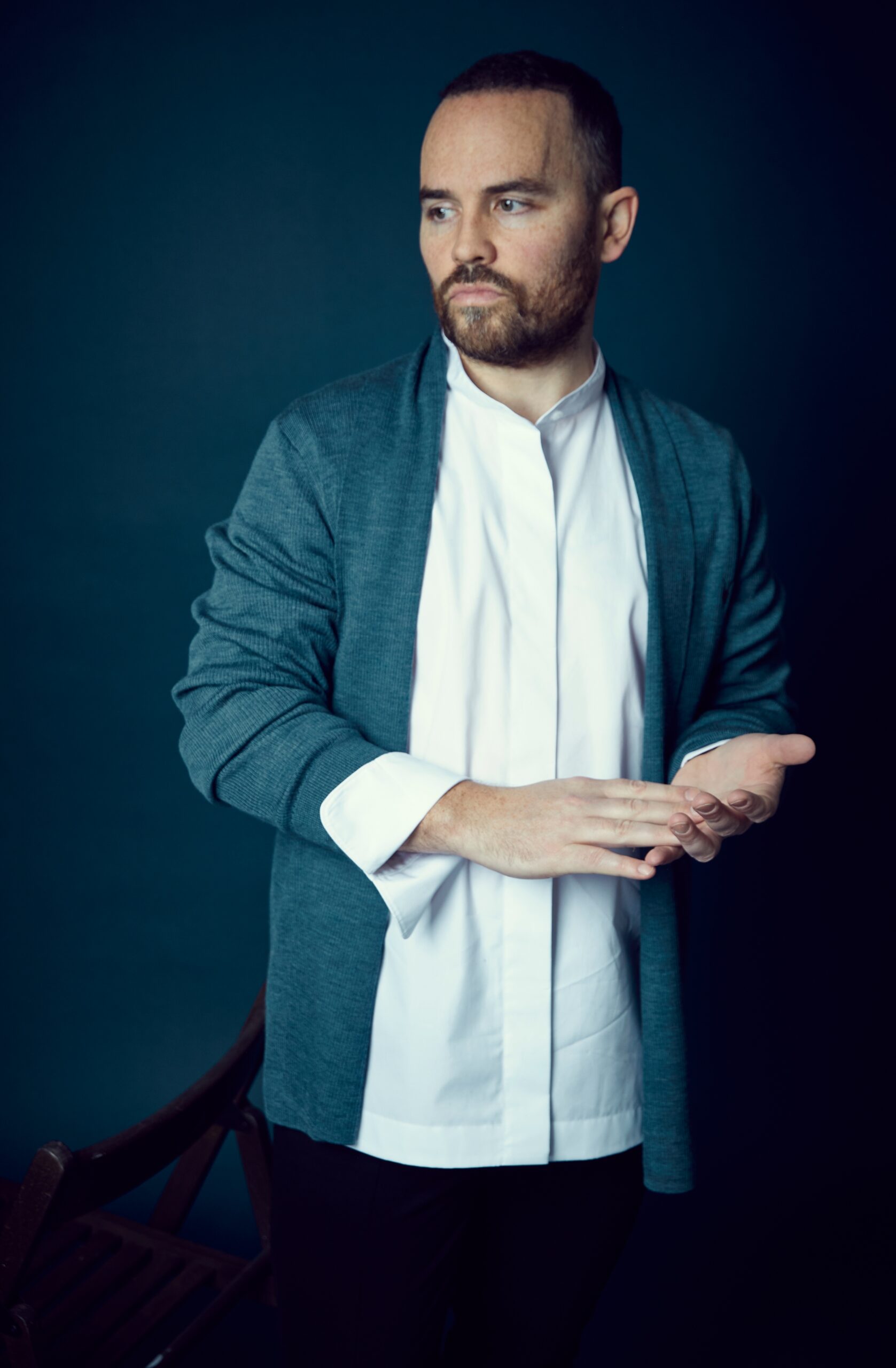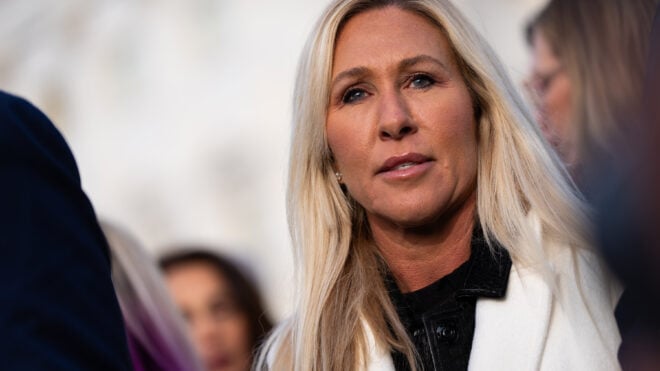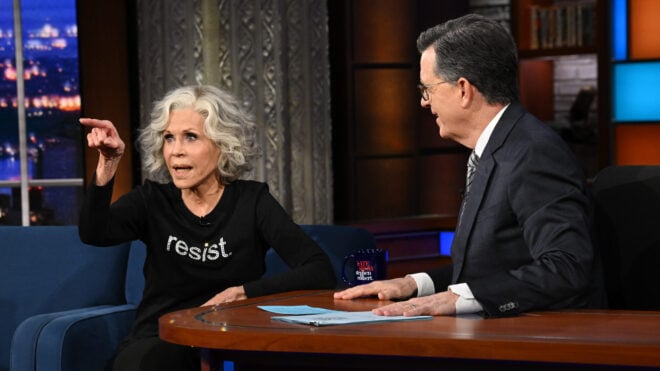
As far back as he can remember, Jonathan Joly, the social media content creator behind one of YouTube’s most beloved families, knew something about him was different from the other boys. He didn’t share the same interests, he only made friends with other girls, he played with girls toys, and he thought of himself as a girl. At just 9 years old and growing up in conservative Dublin, Joly came very close to ending his life because he couldn’t see a way out. He endured years of childhood bullying, abuse, and chronic misunderstanding from both adults and his peers. Today, at age 40, he has clarified his gender identity after watching his own child have the same experience. He shares his story in the book All My Friends Are Invisible, and he spoke more in-depth during an interview with LittleThings.
“I am a nonbinary person, and my sexuality is straight,” explains Joly, who today resides in London with his wife, four children, and six dogs. “I am a woman on the inside and a man on the outside. I can be fluid with my gender and identity. There may have been a moment in my childhood when, with the right support, I might have wanted to transition completely to a woman. But without examples in my life or the media I consumed, that was never an idea I could have imagined. So I kept those thoughts to myself and created my own world inside my imagination: It was called Domdie. It was a world filled with invisible friends that helped me to process and manage my own mental health and identity struggles.”
During the pandemic, Joly admits, “Observing my child repeat the same behaviors and thought patterns woke the girl inside of me. I was suppressing her to ensure my daughter would not be subject to a lifetime of emotional trauma and confusion like I have been.”
His daughter is now 8 years old, and Joly shares, “Myself and my wife [Anna] always knew there was something about our baby that went against the traditional idea of what a boy was supposed to be. And the older she got, the more she expressed herself as a girl until she was old enough to start attending school. And that’s where things took a turn for the worst. She started to close up and became very quiet, had no friends, and wasn’t the happy child she was before. Near the end of kindergarten when she was 5 years old, she told my wife she was really excited for the next school year so she could start wearing the pretty dress her sister wore at school. When my wife told her she wouldn’t be wearing that, she would instead be wearing a gray shirt and gray shorts, she was once again reminded that how she felt didn’t match up to how the world saw her.”
At age 6, their child started to live two lives. At home she had a wardrobe with all her sister’s hand-me-down clothes on one side and her school uniform for boys on the other. When the pandemic hit and schools shut down, she asked, “Does this mean I get to be a girl all the time now?”
She did. That included eventually turning on her camera during virtual class and proudly wearing a wig.
“Once she told us she wanted to change her pronouns followed shortly by her name, there was a period of adjustment for everyone in our family,” admits Joly. “Her younger siblings, unable to understand why their older brother was now their older sister, took some time. But now it’s almost like she has always been their big sister. It makes it a lot easier when she never presented herself as a boy, even when she was being referred to with male pronouns, so there wasn’t much change other than the paperwork and some light admin.”

Going back to in-person school wasn’t an easy transition, but Joly’s daughter announced herself and has begun to find acceptance among her classmates. “She is a whole new person, not just a new name,” tells Joly. “Her identity is no longer being split; she is complete.”
So is Joly after he began living his truth, too.
His wife has been supportive the entire time. “There has been no change in my marriage because the only reason I married my wife was because she was the first person I ever told my truth to and she didn’t leave,” confides Joly. “Before her there is a long list of broken relationships and heartache when my projected personality clashed with my internal needs, and that always ended in destruction.”
Joly elaborates on their unique family, saying, “I get asked a lot about what I will do if I am wrong, if this is just a discovery phase and she might regret this later on. I have asked her this, and currently she tells me it will never happen. But we have put something in place for her. She knows where the boy is, and if she ever wants to go and get him and become him again, she can. She knows her parents will love her regardless of her identity or gender. A boy, a girl, or neither, she will always be my child, and the same goes for my other three children. I love them all equally, and each of them will be an individual and have their own obstacles to overcome. But they will know, having seen how we supported their sister, that there are no restrictions in our house.”
Sharing his thoughts with other parents, Joly says, “This is also why I believe in educating young children about all the different ways they can live their lives. Life doesn’t need to be rigid. Not only does this lesson help communities feel validated but also stops certain groups from weaponizing subtle discriminations and using them to hurt our children. This is something me and all my invisible friends will never stop fighting.”
Joly adds, “You can see some videos on the subject on our family TikTok and Instagram. It started off as something I did with her because she would come home from school upset because of what certain people were saying to her. I wanted to show her representation. I knew she and I were not alone in how we felt. What I didn’t expect was the level of response we received — not hundreds or thousands, but tens of millions of people viewed and applauded us. She felt seen and validated, so thank you, if you were one of those who left a nice comment and made my daughter happy.”
Joly concludes, “We created a safe environment at home for our child to express herself, never judging her choices and supporting her when she expressed ideas that went against the gender norms. You will experience pushback from society, school, your community, and maybe even from inside your own family. But only you know your child, so keep listening to your parental instincts, and you will both make it. You are not alone.”







